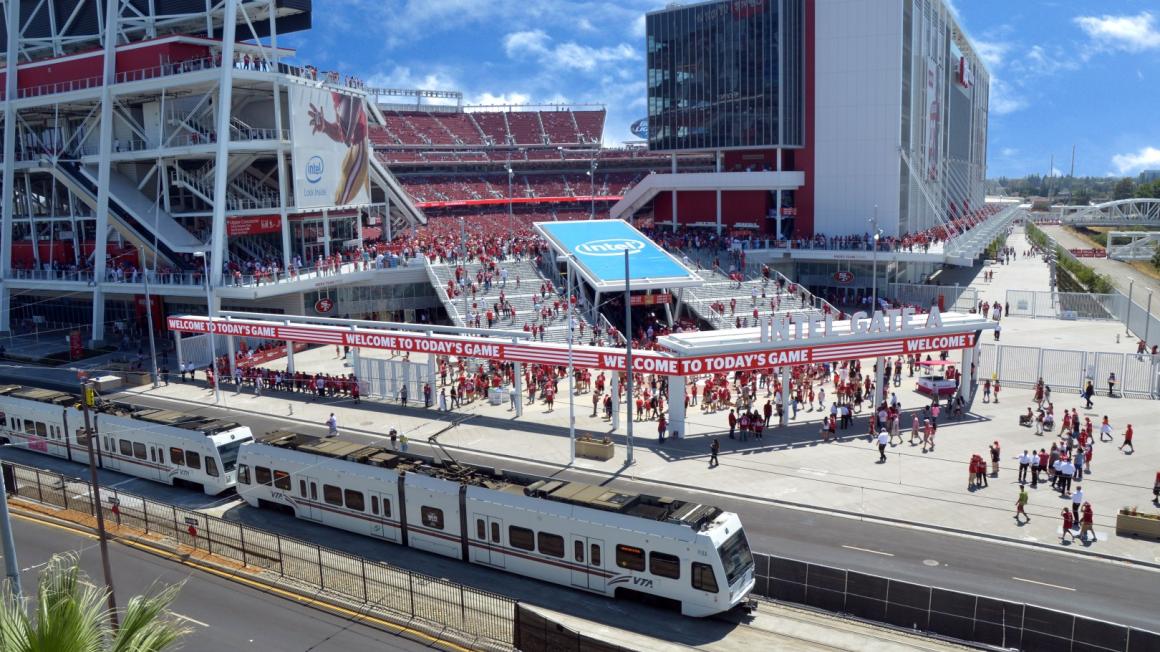In Philadelphia, your water bill used to be based only on your water consumption, as in most cities. Now, under the city’s Green City, Clean Waters initiative, your bill is a more accurate reflection of your water footprint, including the amount it costs the city to manage stormwater runoff from your property. This has been a hard pill to swallow for owners of parking lots and other entities that spread a large swath of asphalt on the city.
Katherine Gajewski, Philly’s sustainability director, says the change was a shock to the system for some people. “Imagine a car rental shop with acres and acres of impervious pavement,” she said, “but it only has three employees in the office and so they’ve always had a low water bill.” But now, with the city factoring in a company’s larger water footprint, its water bill could go from $400 to $2,500. Meanwhile, a skyscraper’s water bill could go in the opposite direction, with its high consumption mitigated by its slender footprint and a high surface-to-volume ratio.
Like attempts at market rate parking or congestion pricing, the stormwater effort forces people to pay the true costs of their behavior, including environmental impact. And though advocates for transportation options may not think about sewer overflow on their list of environmental hazards caused by the automobile, car-based infrastructure poses one of the biggest threats to sound stormwater management.
Philadelphia’s goal is to capture the first inch of rainfall in any storm event. They aren’t trying necessarily to use the water – Philadelphia doesn’t have a water shortage. The problem is that a big rain will overfill the sewers and flow into the waterways, causing a major water pollution problem. (In Philadelphia, unlike some cities with more modern water systems, stormwater and wastewater go to the same place. Under normal circumstances, that place is the water treatment plant. When the sewers are overwhelmed, it flows out to rivers and creeks.) The problem has knocked Philadelphia out of compliance with the Clean Water Act. For every acre of impervious asphalt “greened,” the city says, they reduce runoff by a million gallons a year.
And of course, climate change, caused in part by all the cars running on all that asphalt, is bringing about more and more severe weather events that are creating more and more burden for struggling water systems and causing more and more water pollution.
Philadelphia is now one of the top few cities in the country for green roofs. And they’re also implementing myriad public space improvements that are popular and desirable in cities for a thousand other reasons besides stormwater management. Green spaces make cities more beautiful and walkable, they improve rates of healthy outdoor activity – all the things you already know.
The shock businesses experienced when the system changed is all part of the process, Gajewski said. First business owners freak out, then the city helps them with a remediation plan including design help, grants and loans to help businesses retrofit.
One thing the car rental shop or the parking lot can do, of course, is switch to pervious asphalt, and that’s a big part of the city’s campaign. But the shop might also determine that it doesn’t really need a hundred percent of its parking lot for its car inventory. Maybe a quarter of the lot can be given over to build a new rain trench, or to provide connectivity for a recreational trail. The University of Pennsylvania and the Philadelphia public school district, both with many parking lots in their infrastructure inventory, are becoming interested in greening their facilities.
Indeed, the stormwater plan is being crafted in conjunction with a rewrite of the city’s zoning code, the drafting of a new sustainability plan, and the debut of the city’s new comprehensive plan, Philadelphia 2035. Together, they form a green streets agenda with transportation mode shift at its core – getting more people around by foot, by bike, and by transit.
Philadelphia’s Green City, Clean Waters initiative is still awaiting EPA approval. If it’s granted, Philly will be the first city in the country to use green infrastructure, not gray, to resolve their noncompliance with the Clean Water Act.






